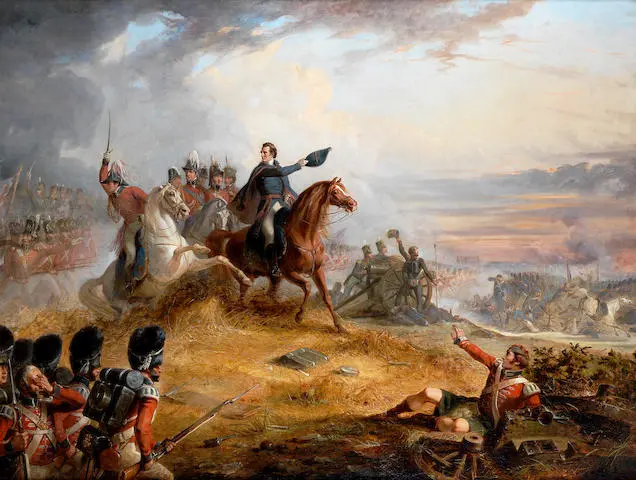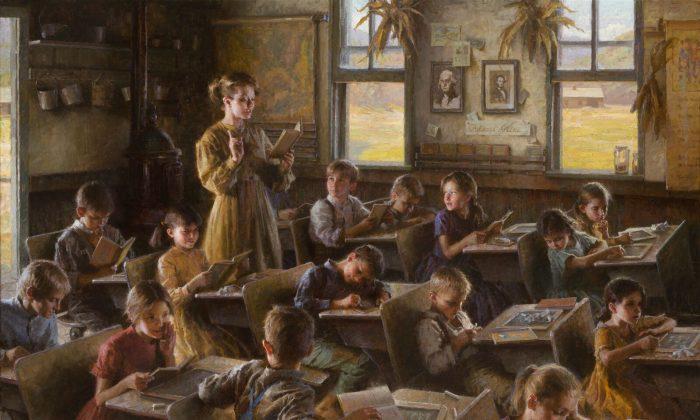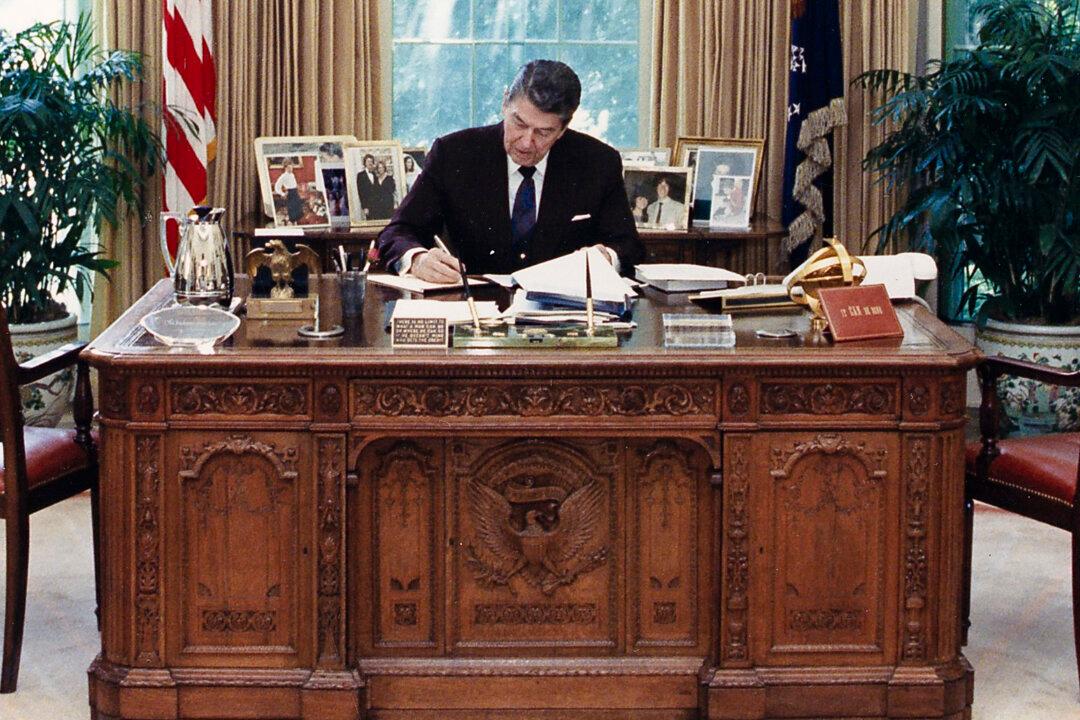It’s late May of 1940, and in France, resistance to the invading German forces is falling apart. Consequently, newly appointed prime minister Winston Churchill is en route to a meeting with his war cabinet to discuss possible terms of peace with Hitler and Mussolini. He studies the Londoners on the rain-wet sidewalks, and on an impulse abandons both his car and driver to take the Tube to Westminster. Following some humorous moments in the subway car—“What are you all staring at?” Churchill asks. “Have you never seen a prime minister ride the Underground before?” Churchill puts this question to the passengers: “If the worst came to pass, and the enemy were to appear on those streets above, what would you do?”
The answers come immediately. “Fight.” “Fight the fascists.” “Fight them with anything we can lay our hands on.” “Broom handles, if we must.” “Street by street.” “They’ll never take Piccadilly.”
Churchill then asks: “And what if I put it to you all, that we might, if we ask nicely, get very favorable terms from Mr. Hitler if we enter into a peace deal with him right now? What would you say to that?”
“Never,” the passengers say in unison. “Never, never.” A schoolgirl speaking last attracts Churchill’s attention. He takes the seat opposite her and says, “Never, never. For you will never give up.” The girl replies emphatically, “No, never.”

‘Never, Never Give In’
Fortitude and courage are synonyms, used interchangeably as one of the four cardinal virtues. Even so, fortitude brings better to mind the idea of perseverance. “Courage faces and resists danger; fortitude endures pain,” wrote the 18th-century theologian William S. Plumer. “Courage is for action, fortitude for suffering.”Winston Churchill had displayed courage on the battlefields of his youth and was an exemplar of fortitude throughout his long up-and-down political career. By word and deed, he stiffened the spines of his fellow Brits throughout World War II. In “Darkest Hour,” with the European subcontinent crushed beneath the fascist boot, Churchill and the British find themselves on their own, pitted against the powerful German military machine.
The film ends with the miraculous evacuation of troops at Dunkirk and Churchill’s famous “We shall fight them on the beaches” speech. Therefore, viewers don’t see the German U-boats that would soon endanger British supply lines or the aerial Blitz that plastered the island nation with bombs. Here as well, fortitude would carry the day.
‘Invisible Steel’
This same blend of courage and persistence found in our history books is also at the core of much of our literature.
Katy follows through on these instructions. Despite her daily grind of trying to earn and set aside a few pennies, she makes time for reading to her children, Francie and Neeley. Later they spend part of every evening reading a page aloud from Shakespeare and the Bible.
In these and other acts of devotion to her children, Katie demonstrates this lesson: Love motivates and enriches fortitude. Without a motivating force, fortitude withers on the vine. In this passage, she remembers the sacrifices she’s made for love:
“It’s come at last,“ she thought, ”the time when you can no longer stand between your children and heartache. When there wasn’t enough food in the house you pretended that you weren’t hungry so they could have more. In the cold of a winter’s night you got up and put your blanket on their bed so they wouldn’t be cold. You‘d kill anyone who tried to harm them—I tried my best to kill that man in the hallway. Then one sunny day, they walk out in all innocence and they walk right into the grief that you’d give your life to spare them from.”
At one point in the story, Smith offers this description of Mary Rommely, her adult daughters, including Katie, and her granddaughter Francie: “They were all slender, frail creatures with wondering eyes and soft fluttery voices. But they were made out of thin invisible steel.”
You Work With What You Have
Although Edward Rowland Sill (1841–87) titled his poem “Opportunity,” fortitude is also at the heart of his verse:This I beheld, or dreamed it in a dream:— There spread a cloud of dust along a plain; And underneath the cloud, or in it, raged A furious battle, and men yelled, and swords Shocked upon swords and shields. A prince’s banner Wavered, then staggered backward, hemmed by foes.
A craven hung along the battle’s edge, And thought, “Had I a sword of keener steel— That blue blade that the king’s son bears,—but this Blunt thing—!” he snapt and flung it from his hand, And lowering crept away and left the field.
Then came the king’s son, wounded, sore bestead, And weaponless, and saw the broken sword, Hilt-buried in the dry and trodden sand, And ran and snatched it, and with battle shout Lifted afresh he hewed his enemy down, And saved a great cause that heroic day.
The coward finds the excuse that allows him to flee the battlefield. He has failed the fortitude test. Meanwhile, the king’s son takes up the broken sword, raises it, reenters the fray, and triumphs. As in Rudyard Kipling’s poem “If—” he wins the day with “worn-out tools.”Partners in Perseverance
Books of history, biography, and imaginative literature provide countless examples of men, women, and children—some extraordinary in their gifts and talents, some as commonplace as sunshine and rain—whose strong character shines in adversity. George Washington, Abraham Lincoln, Thomas Edison, Ernest Shackleton, and Booker T. Washington are but a handful of real-life mentors in fortitude. Brontë’s Jane Eyre, Hawthorne’s Hester Prynne, and Mark Helprin’s Alessandro Giuliani are just a sampling of such heroic figures found in fiction.
The upcoming months promise to bring events on a national and international scale that may well test the strength of mind and spirit of all Americans. For some of us, these same months may bring devastating personal tragedies, such as bankruptcy, a family crisis, or the death of a loved one. Whatever our future holds, odds are we’ll find ourselves sooner or later in a situation where fortitude becomes the determinant for success or failure, victory or defeat.
When that trouble comes our way, we should pause to remember Churchill, Katie Nolan, and the others, and know that we have guides and allies who can help us preserve our courage and persist in the race we run.








